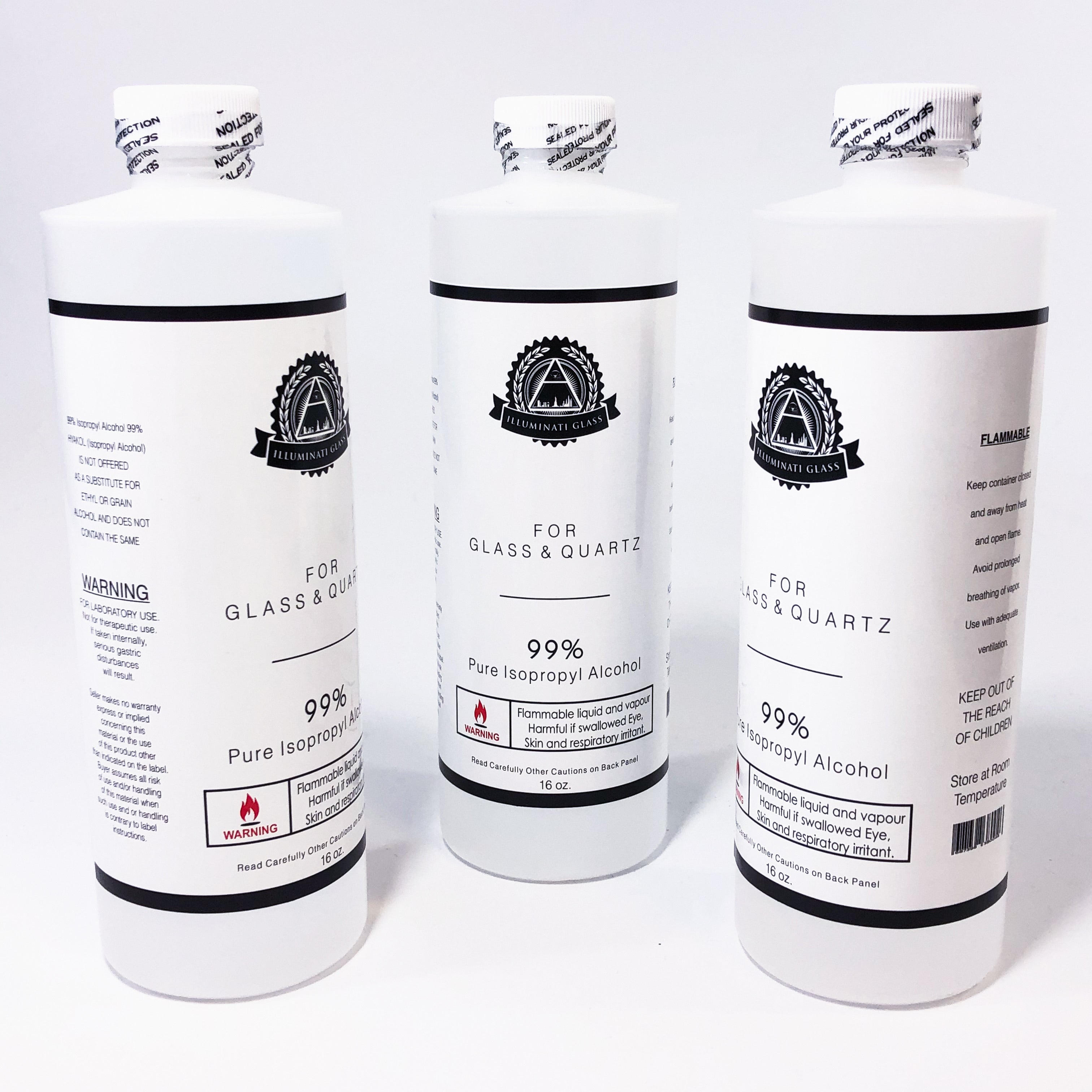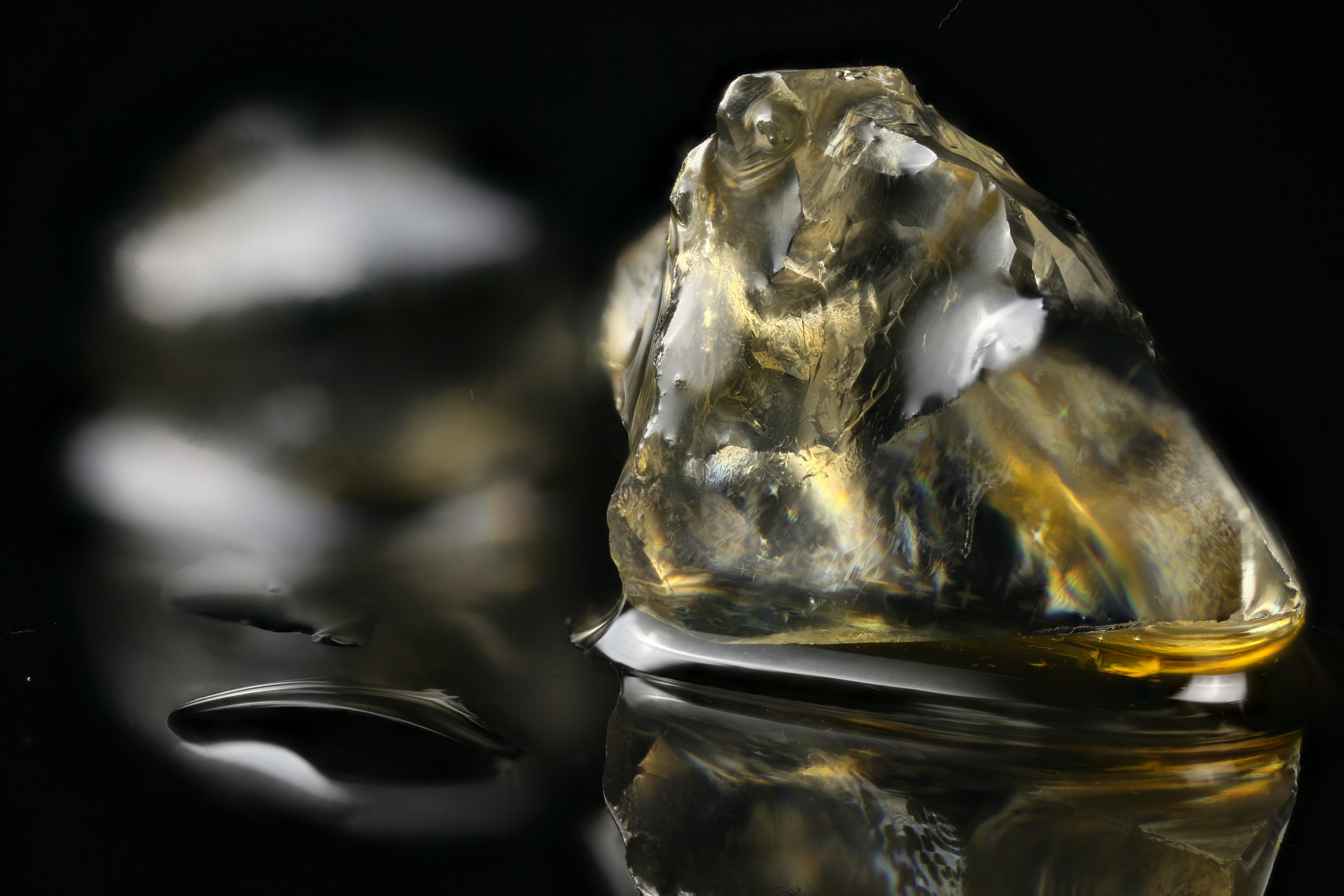Product Offers
Share your best offers
99% Isopropyl Alcohol - Glass & Quartz Cleaner
- Price
- $12

Does THCA Get You High? All You Need to Know
Discover if THCA gets you high, its effects on the body, the science behind it, and debunk some common myths in our detailed guide.
Does THCA Get You High? A Basic Explanation
Tetrahydrocannabinolic acid (THCA) is one of the many cannabinoids found in raw cannabis. Unlike its well-known cousin, THC (tetrahydrocannabinol), THCA is non-psychoactive in its natural state. This blog delves deep into what THCA is, how it works, and whether it has the potential to get you high.
We’ll also explore the process of decarboxylation, compare THCA with THC, and address common misconceptions surrounding this cannabinoid. Whether you’re interested in the science, legal aspects, or therapeutic benefits of THCA, this comprehensive guide will cover everything you need to know.

Unpacking THCA: What Is It and Does THCA Get You High?
THCA is a cannabinoid that is abundantly present in raw and live cannabis plants. It is the acidic precursor to THC, meaning that THCA converts into THC when exposed to heat through a process known as decarboxylation.
In its raw form, THCA does not bind well to the cannabinoid receptors in the brain that produce psychoactive effects, which is why consuming raw cannabis does not result in a high. However, THCA may still offer a range of potential benefits, particularly for those interested in the medicinal properties of cannabis without the intoxicating effects.
Decarboxylation Explained: How THCA Converts to THC?
Decarboxylation is the process by which THCA is transformed into THC, the cannabinoid responsible for the psychoactive effects of cannabis. This conversion occurs when cannabis is exposed to heat, either through smoking, vaporizing, or cooking.
Key Points of Decarboxylation:
- Chemical Structure Change: THCA loses a carboxyl group (COOH) when heated, converting it into THC.
- Temperature Matters: The process begins at around 220°F (105°C) and is typically completed within 30-45 minutes, depending on the method.
- Methods of Decarboxylation:
- Smoking or vaporizing cannabis immediately decarboxylates THCA into THC.
- Baking cannabis (e.g., to make edibles) requires careful temperature control to ensure proper conversion without degrading the THC.
- No High Without Heat: Without decarboxylation, THCA remains non-psychoactive, meaning consuming raw cannabis won’t get you high.
- Optimal Conversion: The goal is to convert as much THCA as possible into THC while preserving the plant’s terpenes and other cannabinoids.
The Science Behind THCA: Understanding Its Effects on the Body
THCA interacts with the body’s endocannabinoid system (ECS), which plays a critical role in maintaining homeostasis by regulating functions such as mood, sleep, and immune response. While THCA doesn’t produce the psychoactive effects associated with THC, it does have a variety of potential therapeutic effects.
Research indicates that THCA may have anti-inflammatory, neuroprotective, and antiemetic properties, making it a candidate for treating conditions like arthritis, neurodegenerative diseases, and nausea.
However, because THCA is not psychoactive, it doesn’t induce the “high” associated with THC. This characteristic makes THCA particularly appealing to users who want to experience the therapeutic benefits of cannabis without the mind-altering effects.
Does THCA Get You High? Debunking Common Myths
There is a common misconception that consuming THCA in any form will lead to a psychoactive high similar to THC. This is not accurate. Let’s debunk some of these myths:
Myth: THCA is psychoactive like THC.
Reality: THCA is non-psychoactive and does not produce a high unless it is converted to THC through decarboxylation.
Myth: Eating raw cannabis will get you high.
Reality: Eating raw cannabis only introduces THCA into your system, which does not have psychoactive effects.
Myth: All cannabinoids in cannabis are psychoactive.
Reality: Many cannabinoids, including THCA and CBD, are non-psychoactive and can offer therapeutic benefits without the high.
Myth: You can get high from juicing raw cannabis.
Reality: Juicing raw cannabis introduces THCA but does not cause intoxication.
Myth: THCA-rich strains are for getting high.
Reality: THCA-rich strains are often used for medicinal purposes because they do not produce a high.
Myth: THCA becomes psychoactive without heat.
Reality: THCA requires decarboxylation to become psychoactive THC.
The Legal Status of THCA and Its Implications
The legal status of THCA is a complex issue that varies depending on the jurisdiction. In many regions, THCA is not explicitly regulated because it lacks the psychoactive effects associated with THC. However, since THCA can be converted into THC through the process of decarboxylation, some areas treat it similarly to THC under the law.
In the United States, for instance, states where cannabis is legal often permit the sale of THCA in various forms, including raw cannabis, concentrates, and edibles. Conversely, in states where cannabis is illegal, possessing THCA products may be considered unlawful if they are perceived as containing THC. On the international front, the legality of THCA also varies widely. In countries with strict cannabis laws, THCA may be treated the same as THC, leading to legal complications.

Given these nuances, it is crucial to understand the local laws before purchasing or consuming THCA products. If there is any uncertainty about the regulations in your area, it is advisable to consult with legal professionals to ensure compliance with the law.
THCA vs. THC: Comparing Their Psychoactive Effects
While THCA vs THC share a chemical relationship, their effects on the body are notably different. Here's a comparison table to highlight these differences:
|
Aspect |
THCA |
THC |
|
Chemical Structure |
THCA (acidic form of THC) |
THC (decarboxylated form of THCA) |
|
Psychoactive |
No |
Yes |
|
Interaction with ECS |
Limited interaction with CB1 receptors |
Strong interaction with CB1 receptors |
|
Potential Effects |
Anti-inflammatory, neuroprotective |
Euphoria, altered perception, relaxation |
|
Methods of Consumption |
Raw cannabis, tinctures, juices |
Smoking, vaping, edibles |
|
Legal Status |
Less regulated, but varies by jurisdiction |
Highly regulated, varies by jurisdiction |
Potential Therapeutic Benefits of THCA Without the High
THCA offers a range of potential therapeutic benefits without the psychoactive effects of THC. This makes it particularly attractive to those seeking the medicinal benefits of cannabis without the accompanying high.
Key Therapeutic Benefits:
- Anti-Inflammatory Properties: THCA has been shown to reduce inflammation, making it a potential treatment for conditions like arthritis and inflammatory bowel disease.
- Neuroprotective Effects: Research suggests that THCA may protect against neurodegenerative diseases like Alzheimer’s and Parkinson’s.
- Anti-Nausea and Anti-Emetic: THCA may help alleviate nausea and vomiting, particularly in patients undergoing chemotherapy.
- Antioxidant Properties: THCA may help protect cells from oxidative stress, which is linked to various chronic conditions.
- Potential for Pain Relief: While not as potent as THC, THCA may still offer some level of pain relief.
- Muscle Relaxant: THCA may help relax muscles, making it beneficial for conditions like muscle spasms.
- Anti-Inflammatory Effects: THCA has shown potential in reducing inflammation, which could be beneficial for conditions like arthritis or inflammatory bowel disease.
- Appetite Stimulation: Similar to THC, THCA may also stimulate appetite, which can be helpful for individuals dealing with appetite loss due to illness or treatment.
Methods to Activate THCA: From Raw to Psychoactive
For those interested in experiencing the psychoactive effects of THCA, activating it through decarboxylation is necessary. Here are the most common methods to achieve this:
- Smoking: The simplest method. Lighting cannabis in a joint, pipe, or bong instantly decarboxylates THCA into THC.
- Vaping: Vaping heats cannabis at a controlled temperature, converting THCA to THC without combustion.
- Baking: When making edibles, baking cannabis at a low temperature allows for the gradual conversion of THCA to THC.
- Hotboxing: Hotboxing involves smoking in an enclosed space, ensuring that all the smoke (and converted THC) is inhaled.
- Cannabis Tea: While making cannabis tea, decarboxylating the cannabis first or steeping it in hot water with fat (like milk) can activate the THCA into THC.
- THCA Vapes: Thca vapes are pre-made vape products where the THCA has already been decarboxylated into THC.
- THCA Gummies: These are edibles made with decarboxylated cannabis, providing a psychoactive effect similar to THC.
- Oven Decarboxylation: Placing cannabis in the oven at a low, consistent temperature (usually around 220-240°F) for 30-45 minutes effectively decarboxylates THCA into THC, making it suitable for edibles or tinctures.
- Sous Vide Decarboxylation: Using a sous vide machine, cannabis can be decarboxylated at a precise temperature in a water bath. This method preserves the terpenes and cannabinoids while converting THCA to THC, offering a controlled and consistent result.
Future Research: What’s Next for THCA in Cannabis Science?
As the cannabis industry expands, there is growing interest in lesser-known cannabinoids like THCA. Future research is expected to delve into the full spectrum of THCA’s therapeutic benefits, exploring its potential applications in medicine and its interaction with other cannabinoids and terpenes.
Key areas for future research include investigating the conditions that THCA may effectively treat, understanding how it interacts synergistically with cannabinoids like CBD and THC, and exploring its pharmacokinetics and pharmacodynamics in the human body.

Additionally, developing standardized dosing guidelines for medical use will be crucial as the demand for THCA-infused products, such as THCA gummies and vapes, continues to rise. Legal implications will also be a significant focus, with evolving cannabis laws potentially impacting the availability and regulation of THCA products.
Increasing public awareness of THCA’s unique benefits, especially how it differs from THC in medicinal use, will be essential as this cannabinoid gains more attention in the cannabis community.
Final Thoughts?
THCA is a fascinating cannabinoid with a range of potential therapeutic benefits and applications. While it doesn’t produce the psychoactive effects associated with THC, its role in the world of cannabis is significant.
Whether you’re interested in exploring non-psychoactive cannabis options or simply curious about the science behind cannabinoids, understanding THCA is essential.
As research continues to uncover the potential of THCA, it’s likely to become a more prominent component of both medicinal and recreational cannabis use.
FAQs: Answering Your Questions About THCA and Its Effects
Can I get high by consuming THCA gummies?
No, THCA gummies won’t get you high unless the THCA has been decarboxylated into THC during the production process. Most raw THCA products are non-psychoactive.
What is the difference between THCA vapes and regular THC vapes?
THCA vapes contain the acidic form of THC and are typically non-psychoactive. Regular THC vapes have already undergone decarboxylation, meaning they contain the active form of THC that produces a high.
Is THCA safe to smoke without converting it to THC?
Yes, smoking THCA is safe, but it will naturally convert to THC when exposed to heat. Therefore, you will experience the psychoactive effects associated with THC when smoking THCA-rich cannabis.
How does hotboxing with THCA-rich cannabis affect you?
Hotboxing with THCA-rich cannabis will cause the THCA to decarboxylate into THC due to the heat, leading to a psychoactive effect similar to hotboxing with THC-rich cannabis.
Can I use THCA to make cannabis tea?
Yes, you can use THCA to make cannabis tea, but to experience psychoactive effects, the THCA must be decarboxylated first, either by heating the tea or using a fat-based substance like milk.
What are the potential benefits of THCA flower compared to THC flower?
THCA flower offers potential anti-inflammatory, neuroprotective, and anti-nausea benefits without the high, making it suitable for those seeking therapeutic effects without intoxication.
How does THCA compare to Delta 9 THC in terms of effects?
THCA is non-psychoactive and must be converted to THC to produce similar effects to Delta 9 THC, which is psychoactive and responsible for the high commonly associated with cannabis.












